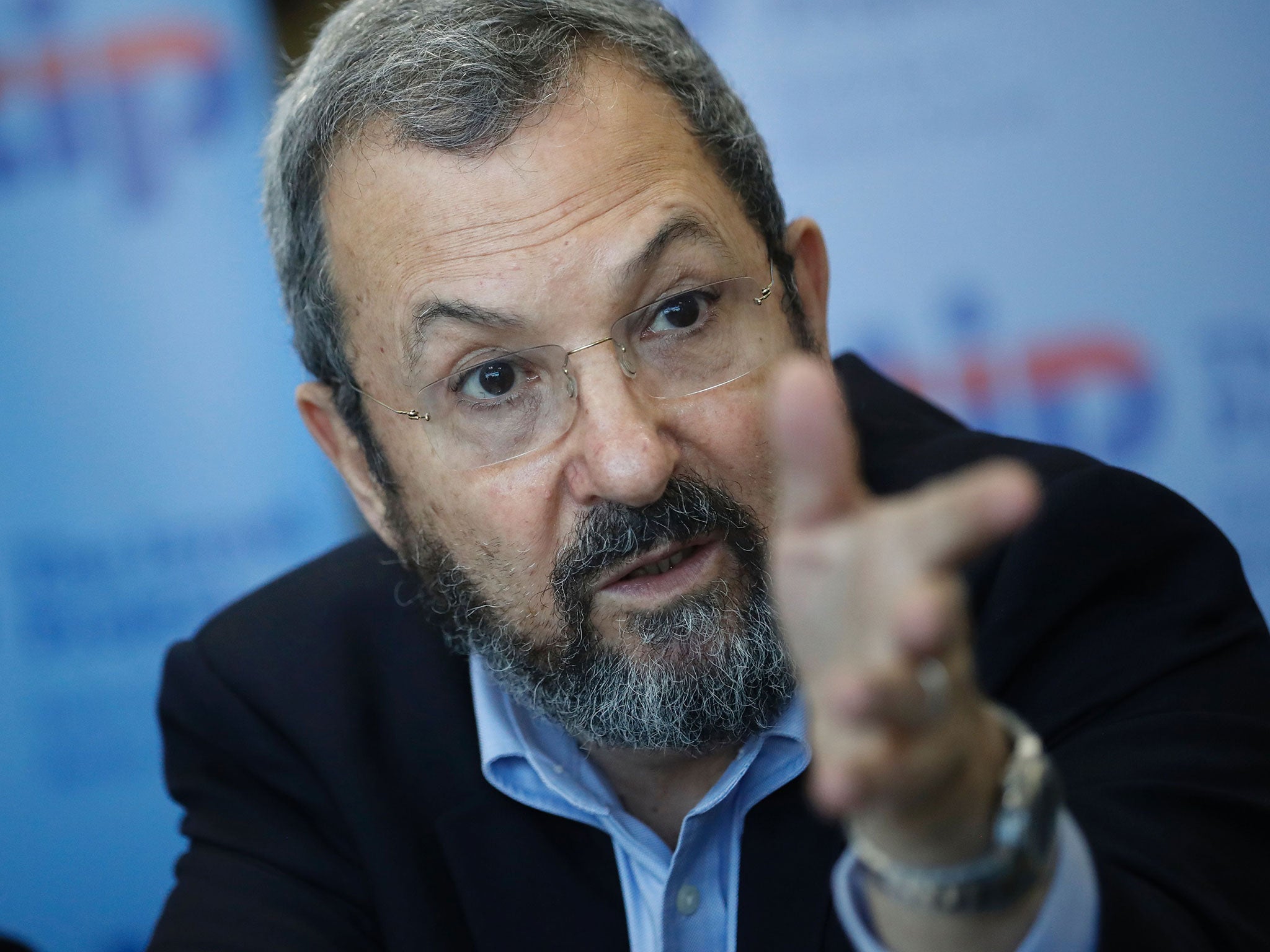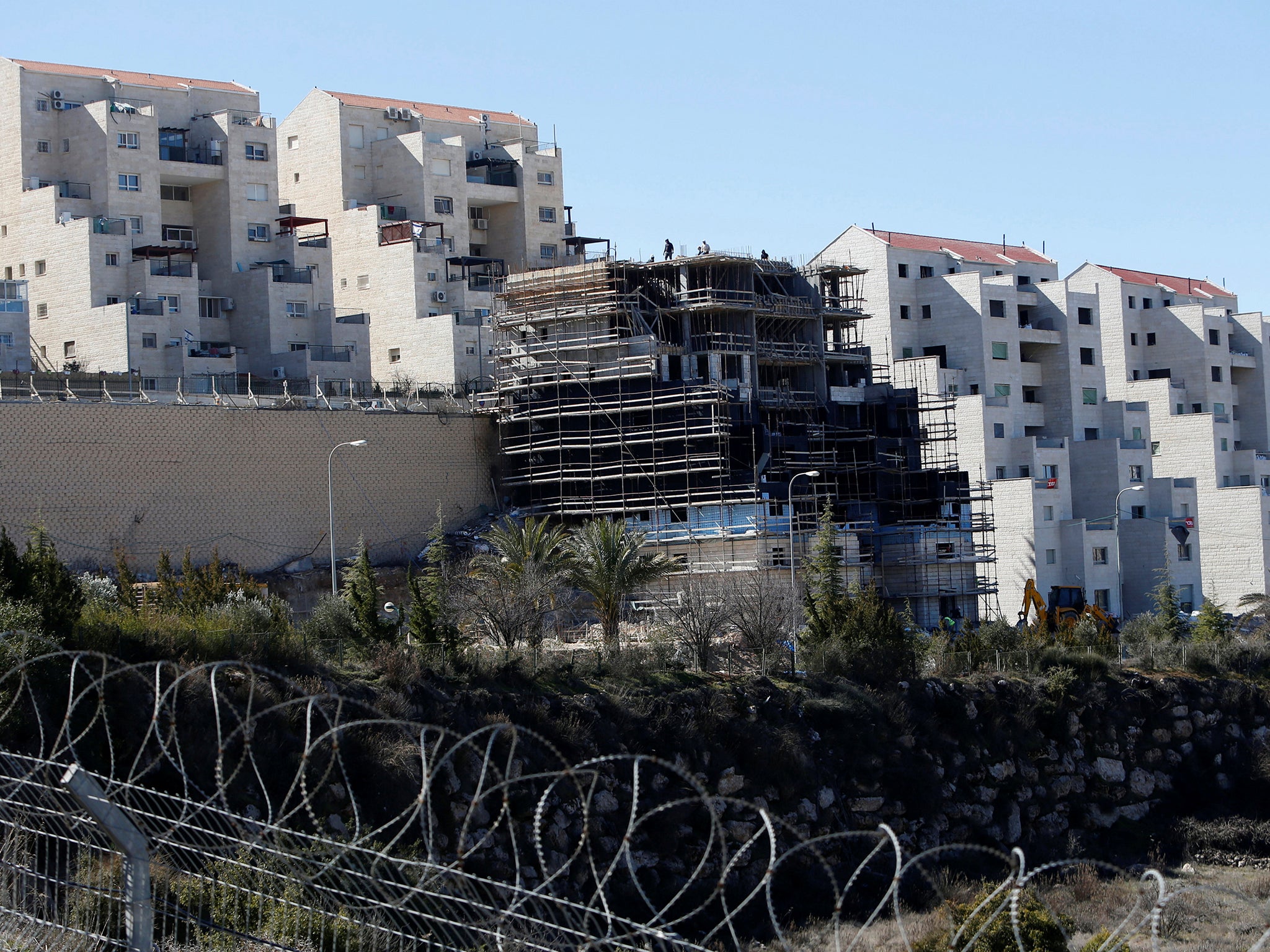Israel's former Prime Minister says country faces 'slippery slope to apartheid'
Ehud Barak argues one-state solution would make country 'non-Jewish' or 'non-democratic'

Israel’s former Prime Minister has warned that the country could face a “slippery slope toward apartheid” under Benjamin Netanyahu’s government.
Ehud Barak, who retired from politics in 2013, said Israel “faces a choice”.
“If we keep controlling the whole area from the Mediterranean to the River Jordan where some 13 million people are living – eight million Israelis and five million Palestinians –if only one entity reigns over this whole area, named Israel, it will become inevitably either non-Jewish or non-democratic,” he told Deutsche Welle.
Mr Barak claimed a one-state solution where Palestinians in the West Bank would be given given autonomy, rights and the ability to vote for the Knesset would create “a binational state with an Arab majority and permanent civil war”.
The 74-year-old claimed the current path taken by the government, which he has accused of using Jewish settlements to make a two-state solution untenable, could bring the country “on a slippery slope toward apartheid”.
“So we have to change it,” Mr Barak said, calling on the Israeli government to change direction to protect the “Zionist dream” with two states.

Britain and other countries have sounded warnings over continued construction of Jewish settlements in the Occupied Palestinian Territories, which are illegal under international law.
Settlers can vote in elections for the Knesset, but Palestinian citizens living in the West Bank – including in areas wholly administered by Israel – cannot.
The disparity along with measures including the West Bank barrier, ID system, settlement infrastructure, legal rights and the division of resources has sparked long-running comparisons to South Africa’s treatment of non-whites in the apartheid era.
Others have dismissed the comparison, pointing out that Israeli law does not support racial segregation as South Africa’s did, but distinguishes by citizenship.
Politicians, analysts and human rights groups making the comparison have been accused of fostering anti-Semitism by delegitimising Israel.
Mr Barak has used the term since leaving government, claiming it has since been taken over by “fanatical” and “radical” groups that are undermining democracy and alienating foreign allies.
He told Deutsche Welle: “When I was Prime Minister we enjoyed the support of the whole world for our policy because it was clear that, on one hand, we are still building within the settlement blocs, but we are genuinely ready to make a deal with the Palestinians and give up the isolated settlements.”

Mr Barak served as Prime Minister from 1999 to 2001 and was the leader of Israel’s Labor Party until 2011, holding the posts of defence minister and deputy Prime Minister in Mr Netanyahu’s second government.
As Israel’s jointly most decorated soldier, he served as the Israeli Defense Forces (IDF) Chief of General Staff and led Israeli operations in the 2008/9 Gaza War.
Known as Operation Cast Lead, the three-week conflict saw 13 Israelis and more than 1,000 Palestinians killed in three weeks of battles and bombardment targeting Hamas rocket sites and weapons in the Gaza Strip.
Asked about the scale of civilian deaths, including hundreds of children and resulting in a UN report accusing the IDF of war crimes, Mr Barak said he was “not happy with any human life lost”.
“I am very sorry for it but I cannot tell you that I will not repeat it if the life and security of our own people is at stake,” he added.
“I care about morality but I care more about our very survival in life.”
The former Prime Minister has publicly criticised Mr Netanyahu’s current government on several occasions, having served under his successor as his deputy and defence minister.
In June last year, Mr Barak repeated warnings of Israel becoming an “apartheid state” and accused the government of mounting a “covert agenda” to thwart a future Palestinian state.
Mr Netanyahu dismissed that criticism and accused Mr Barak of attacking him “once a month” in a bid to “stay relevant”.
There was no immediate response from the Israeli government to the interview broadcast on Wednesday, as Donald Trump’s Middle East adviser made a visit to the country.
Jared Kushner, who is also the President’s son-in-law, met Mr Netanyahu alongside the US ambassador to Israel.
He is also due to meet Palestinian President Mahmoud Abbas after being tasked with making what Mr Trump called the “ultimate deal” in floundering peace talks.
A month marking the 50th anniversary of the Six-Day War, when Israel captured the West Bank, East Jerusalem and Gaza Strip, has seen continued violence.
Three Palestinian attackers armed with a gun and knives assaulted police near Jerusalem’s Old City on Friday, killing a female officer.
It was the latest incident in a wave of Palestinian attacks that began in September 2015, killing 43 Israelis, two visiting Americans and a British student.
Around 250 Palestinians have been killed by Israeli security forces during the same period, mostly after being identified as attackers by Israel or in protests and clashes.